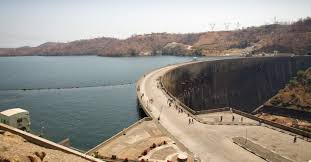ECA pushes AfCFTA implementation to transform region’s economy
THE next Economic Commission for Africa Conference of African Ministers of Finance, Planning and Economic Development, will be held in Ethiopia in March 2025,with a focus on unlocking the huge potential of the African Continental Free Trade Area (AfCFTA).
Launched in 2018 by African countries, the AfCFTA is a free trade area creating a single continental market with a population of about 1,3 billion people and a combined Gross Domestic Product (GDP) of approximately US$3,4 trillion.
The Agreement entered into force in 2019. At its full realisation, the AfCFTA, with the mandate of eliminating trade barriers, will bring together the 55 African Union member states.
Zimbabwe has successfully hosted this year’s conference, which ended yesterday in Victoria Falls. At the closing of the experts segment of the Conference of African Ministers of Finance, Planning, and Economic Development, the meeting proposed to hold the next Indaba in Addis Ababa under the theme:
Prof Ncube and Mr Claver Gatete share a lighter note after closing the Com24 conference
“Advancing the implementation of the Agreement Establishing the AfCFTA: Proposing Transformative Strategic Actions.”
Making the case for the theme, ECA Deputy Executive Secretary and chief economist, Hanan Morsy, said inter-regional trade in Africa stands at only 13 percent, compared to 55 percent in Asia and 70 percent in Europe.
“Furthermore, we have witnessed disruptions in global supply chains due to global shocks, which has impacted on costs, trade flows, costs, and efficiency,” she said.
The ECA is made up of 54 Member States and plays a dual role as a regional arm of the UN and as a key component of the African institutional landscape.
Ms Morsy stressed that Africa has an opportunity to leverage the AfCFTA to break into supply chains that would not have been possible before.
However, the Commission has noted that challenges remain in terms of regulatory reforms needed to advance the implementation of the agreement on non-tariff barriers, the high cost of doing business, political impediments, and connectivity challenges.
Ms Morsy, said in proposing the theme of the AfCFTA, policymakers must consider the game changers for advancing the implementation of the free trade agreement, which include developing and advancing cross-border payments systems, high cost of transportation across Africa and using the AfCFTA agreement to advance the development of carbon markets.
She said Africa was at the cusp of the Fourth Industrial Revolution and this was happening at a time when the continent was grappling with challenges of limited internet access and poor infrastructure. It was critical for Africa to improve access to digital services and also address the skills and education gap.
“One of the things we can look to incorporate when we are talking about the AfCFTA, is the need for regional integration to address the issue of food security and energy transformation,” said Ms Morsy, noting that without addressing the huge energy gap, Africa cannot accelerate industrialisation and address food insecurity.
Prof Mthuli Ncube (centre) and ECA executive Secretary Mr Claver Gatete soon after closing the Com24
The 2025 edition will bring together African Ministers of Finance, Planning, and Economic Development, governors of central banks, and entities of the United Nations system.
In addition, it will include the participation of pan-African financial institutions, youth representatives, African academic and research institutions, development partners, intergovernmental organisations and other key stakeholders on an annual basis to engage and exchange views on the state of economic and social developments in Africa.
-chronicle..zw











